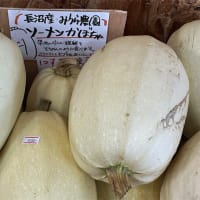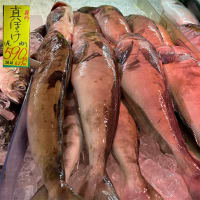



これまで遊動生活としか認識されなかった日本列島での人間社会始原期、
いまから37,000年前からの旧石器時代の様子。
それが具体的な事物に基づく探索で様相があきらかになってきている。
本日は石器時代期の主要な社会循環の手掛かりとして
動物の狩猟がもたらした経済構造基盤についてのパネル展示再構築。
「動物の狩猟と食料」として解説されているのは以下。
〜旧石器時代の石器は狩猟具や動物の解体・加工に使うものが多い。
旧石器時代の人々は石器で動物の骨やツノを削り、肉や皮を切り
皮や木、骨に穴を開けるなどの加工を施した。
肉・血・皮・骨に至るまで食料や衣服、道具の素材として徹底活用された。〜
以下、具体的な利用用途。
1 肉:食料
2 脂肪:食料・調味料・燃料
3 血液:食料・調味料
4 内臓(腸):食料・ロープなど
5 脳味噌:食料
6 毛皮:衣類・テントの外皮材
7 骨:槍先やハンマーなど
8 ツノ(角):槍先やハンマーなど
9 動物繊維(腱など):糸・ロープなど
10 歯・牙:装身具など
11 爪:装身具など
・・・ひとつひとつ納得できる事柄ばかりなのだけれど、
このように具体的に探究されてくると、先史の人々の「想像力」の根源が
具体的にイメージされてくる思いがする。
先人たちにとって狩猟とは、さまざまな人間経済行為の総体であり、
その資源の活用方法についてあらゆる想像力が動員され進化していった。
人間社会にとっての「有用性」への想像力が刺激され続けていた。
昨日はテント外皮素材についての明確な表現は不明と思ったが、
本日細部を確認したところ、明確に「動物皮革」と特定されていた。
ただし、石斧による木の伐採技術の進化で得られる「樹皮」も貴重な資源として
人間社会はその利用を最大限行っただろう。
実際に北海道に10世紀ころまで暮らしていたオホーツク人社会では
竪穴住居の屋根外皮素材として復元住居に使われていたのを確認している。
旧石器時代由来の「建築技術」として樹皮利用もあったことだろう。
しかし防寒性能と、雨水への耐久性能から考えて動物皮革はテント外皮として
最善の解であっただろうことは間違いない。
一方で37,000年前ころに日本列島に至った現生人類は
その長い世界進出において「木で船を作る」技術は必須であった。
人間活動の基本中の基本が「木を加工する」技術。
石器の石斧こそがもっとも始原的な人間の道具だったことだろう。
石器と木材利用が、人間の基本経済構造を形成していた。
上で見るような動物資源とともに木材資源活用が次の社会発展基盤を作っていた。
われわれ現代人が継承している「知能」のルーツを垣間見る思い。・・・
English version⬇
Economic Structure of Hunter-Gatherer Societies: 37,000 Years of Japanese Archipelago History-4
Tents for houses = Harvesting wood with stone axes + use of animal hides, etc. for roofs and exterior walls. Traces of technological infrastructure derived from the Stone Age. Stone Age
The Paleolithic Period, which began 37,000 years ago, is the primitive period of human The Paleolithic Period, which began 37,000 years ago, is the primitive period of human society in the Japanese archipelago, which until now has only been recognized as a nomadic lifestyle.
The Paleolithic period began 37,000 years ago.
The search based on concrete objects has revealed aspects of this period.
Today, I would like to discuss the economic structure brought about by animal hunting as a clue to the main social cycles of the Stone Age period.
The panel exhibition reconstructs the economic structure of animal hunting as a clue to the main social cycles of the Stone Age period.
The following is an explanation of "Animal Hunting and Food".
〜˜Most Paleolithic stone tools are used for hunting tools and for dismantling and processing animals.
Paleolithic people used stone tools to sharpen animal bones and antlers, cut meat and skin, and
They also made holes in the skin, wood, and bones.
Flesh, blood, skin, and bones were thoroughly utilized as materials for food, clothing, and tools. ~.
Below are specific uses.
1 Meat: Food
2 Fat: food, seasoning, fuel
3 Blood: food and seasoning
4 Internal organs (intestines): food, rope, etc.
5 Brains: food
6 Fur: clothing, outer shell material for tents
7 Bones: spear points, hammers, etc.
8 Horns (horns): spear points, hammers, etc.
9 Animal fibers (tendons, etc.): thread, rope, etc.
10 Teeth and fangs: ornaments, etc.
11 Claws: ornaments, etc.
...each of these items makes sense to me.
When we explore the specifics in this way, we can imagine the root of the prehistoric people's "imagination" in concrete terms.
I feel as if I can imagine the source of prehistoric people's "imagination" in concrete terms.
For them, hunting was the sum total of various human economic activities.
The evolution of hunting was based on the mobilization of all kinds of imaginations about how to utilize the resources.
The imagination of its "usefulness" to human society was continually stimulated.
Yesterday, I thought that the clear expression of the tent skin material was unclear, but today I checked the details.
Today, when I checked the details, it was clearly identified as "animal hide.
However, "bark," obtained through the evolution of stone axe logging technology, is also a valuable resource.
Human society would have made maximum use of it.
In fact, the Okhotsk people who lived in Hokkaido until around the 10th century
The Okhotsk people, who lived in Hokkaido until around the 10th century, actually used the bark as a material for the outer roofing of their pit dwellings in reconstructed dwellings.
The use of bark as a "building technique" derived from the Paleolithic period may have also existed.
However, from the standpoint of cold protection and durability against rainwater, animal hides would have been the best solution for tent hulls.
However, animal hides would have been the best solution for tent hulls in terms of cold protection and durability against rainwater.
On the other hand, the present humans, who arrived in the Japanese archipelago around 37,000 years ago, have been using "wood" to make their tents for a long time.
The technology to "make boats out of wood" was indispensable for their long expansion into the world.
The most basic of all human activities is the technology to process wood.
The stone axe was probably the most primitive human tool.
Stone tools and wood use formed the basic human economic structure.
The utilization of wood resources, along with animal resources as seen above, formed the foundation for the next stage of social development.
This is a glimpse into the roots of the "intelligence" that we modern humans have inherited. The world of the Stone Age



















